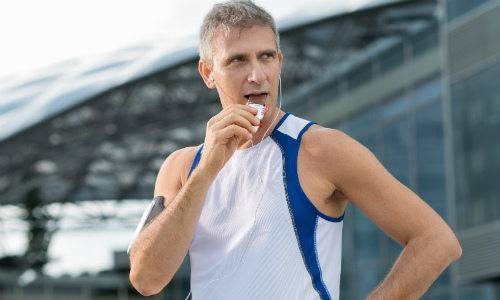Race nutrition | What to eat for performance and recovery
- Overview
If you’ve been training for a race event, you’ve probably been conscious about the fuel you are putting in your body. In the final week before your race, if you’ve been following a nutritional plan you shouldn’t need to change this regime.
However, you may want to plan your nutrition for the race day itself. This will mean that you’ll get the most out of your race and will ensure good recovery.
Timing is important for nutrition, if you eat too early before your race you might run out of energy or feel hungry half way through, if you eat too near to your race start, nerves might just get the better of you!
Make sure you have a breakfast that you’re used to and that won’t upset your stomach. Half a banana with a small bowl of porridge works for me.

Pack an oat and fruit snack bar or similar to give you an energy boost if you need it during the race.
Most importantly, make sure you remain hydrated before, during and after the race. Have a glass of water with breakfast and then pack up a few big bottles to sip regularly throughout the day. You’ll need to replace the fluid that you’ve lost as soon as you cross the finish line so have a sports drink with sodium in it to enhance your water replacement.
After the race
Immediately after your race you may not have much of an appetite, but you should aim to refuel your body with carbohydrates and protein within 30 minutes to avoid an energy crash.
The main priority is carbohydrate, to replenish the used energy from your body. But you should also add protein, which can help recovery and repair the muscles.
Try a smoothie made from a pot of natural yoghurt or protein powder blended with fruit juice; or a banana blended with coconut water, yoghurt/protein powder and a couple of dessert spoons of almond butter.
Then as soon as you can, have a balanced meal of protein (chicken, turkey, eggs, meat or beans), slow releasing carbohydrate (wholemeal rice, quinoa, and wholemeal bread) vegetables, and healthy fats like olive oil and avocado.
Last updated Friday 22 April 2022
First published on Tuesday 12 January 2016
